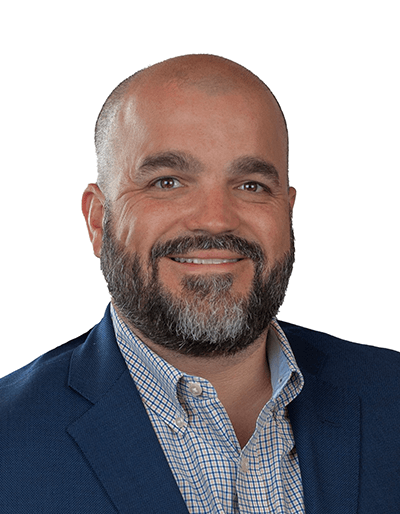Hello, everyone. Thank you so much for joining us today on “This needs to be said”, our friend, attorney Charles is coming to continue a conversation with us. We got excited that we’re able to get back out and take our masks off if we’re fully vaccinated. However, there are some other things that we really need to consider, and instead of getting real excited about summertime and what we get to do for fun, we have to also keep our house in order. Welcome back, attorney Laputka, how are you?
I am very well, Katherine. It’s nice to speak with you again today. And yes, we are all excited to be vaccinated and be masked lists. But, you know, with the, always with the positive, like we spoke about last time, always with the positive, unfortunately comes a little bit of negative. And today I want to talk about, you know, the things that are going to go back to, to normal and, and some of those things that are going to go back to normal are your creditors are going to start looking for their money again. And
There have been lots of great deferments over the last year and a half. A lot of people have been told by the mortgage companies that they could skip a couple of months. Some mortgage companies even let people skip a year’s worth of payments. And the problem is those are coming due. Same thing with car notes. Some people have been able to skip 2, 3, 4, 10 car payments as a result of the pandemic because the creditors were giving you deferments. And the problem is deferment. Just means that we’re pushing it off. And now that it’s been pushed off a year and a half, when the mask comes off, the creditors want their money again. And that’s, that’s unfortunately where this is headed. There have been a lot of moratoriums put in place by various federal and state governments. And, as far as I’m aware, excuse me, as far as I’m aware, we’ve got about two weeks left.
Fill Out A Free Case Evaluation
So the vast majority of all of those moratoriums are scheduled to expire on June 30th. So in about two weeks, we’re going to see, those creditors start to contact people through telephone and collections calls to try and get people back on their payment plan. So like we were talking about last week, again, back to that dirty word budget, we got to start planning back in those, those planned payments for our car notes and our mortgages or else we’re going to be facing the moratoriums lifting. We’re going to be facing repossessions and foreclosures. And, you know, I’ve got, I’ve got some solutions for that. And some things we can talk about to help folks, but planning and budgeting is, you know, the, the primary thing that’s going to help,
Man. So ouch, we gotta get we do this, it’s happening. I mean, for those of us who have student loans, you know, you know, eventually you have to pay, so this is one of those times. So what would you give us some tips for people who this is completely new to.
Absolutely! So, what I would suggest is that our listeners be proactive. And instead of if you’ve been on a forbearance program or a deferment program, instead of waiting for the creditor to contact you, to tell you it’s time to make a payment, I think that one of the best tips I can give is to be proactive, call your bank, call your mortgage company, call your car lender and say, Hey, listen, I really appreciate the break that you’ve given me for the past couple of months or maybe the past year. But I understand that these were temporary relief measures and I’d like to make arrangements to get back on track and to get restarted again. So being proactive is always helpful. And then I want you to ask for additional assistance and by additional assistance, I don’t mean more time without paying. I mean, I want you to call them and say to them, what kind of programs do you have now that I’m a year behind on my, my mortgage payment
What kind of programs do you have available to help me get caught up Because, you know, unfortunately my mortgage was a thousand dollars a month and now I owe you $12,000 and I don’t have it. So we all understand that I don’t have it. Is there any way that we can work together to, to get back on track and there are generally a couple of programs, but it varies by creditor Katherine sometimes. sometimes they will let you just put those payments at the end of the loan, that would be called a loan modification and you just start paying your thousand dollars a month again, and they’ll wait for that $12,000 to the end of your mortgage loan. And you know, that could be 20 or 30 years down the road and you’ll have time to refinance and deal with those things later. So that would be one option.
Another option is to make larger than one payment at a time going forward to get caught up. So maybe they’ll give you the ability to pay instead of a thousand dollars a month to pay 1200 or $1,500 a month until you get caught up that would be another good option and then of course, if they’re not willing to work with you and you happen to have a vehicle repossessed or they’re threatening it, or you have a home go into foreclosure or they’re threatening foreclosure, that’s when you really need to go seek some professional help. And I will suggest that you go meet with an attorney if the bank’s not willing to work with you. So, you know, those, those are really the options.
Fill Out A Free Case Evaluation
Well, thank you for sharing that. And for people I’m speaking for people who have a trouble, have trouble with the word budgeting and rearrange and what I can’t do and ask him for help, all of those live in the same little group together. Yeah, you need to advocate for yourself. You are going to be a little uncomfortable. I was when I started using the word budget and I would fuss about it and I didn’t want to do it because it sounds like something I can’t do is rerouting. Let’s, let’s make this the GPS for your finances rerouted, and you have to go a different way, but you still want to go on this trip, wherever you’re going. You still want to live in your house. You still want to drive your car. You know, this stuff is you’re doing, you want to keep doing it. You want to do it better and you don’t want to have to worry if one of your creditors will take something from you. Talk with them, advocate for yourself as well as we are talking with an attorney right now. So if you are in the Pennsylvania area, Pennsylvania, and where else do you practice so I don’t want to leave anybody out.
We practice in Pennsylvania and in the bordering state of New Jersey, we don’t go all the way over to Jersey City or New York because the, the districts are a little different, but if you’re in Pennsylvania or close to it in New Jersey, we would actually love to speak with you and be able to help you. And I love that analogy of the GPS, Katherine, that’s a, that’s a very good analogy. And what you want to do is take the word budget and take the budget. Meaning I can’t out of your, out of your brain and turn budget into meaning I can, if I budget properly, I can do this. I can manage it properly. I can buy that or we can go on vacation if we budget properly. So we need to just do a little bit of a mentality shift there.
Yes, yes, yes. And that was big for me. I was like, no, it’s telling me what I can do. But the minute I switched that around it, it opened up so many opportunities and you’re like, oh, so if I want to do 10 things, I have to figure out how to do those 10 things, but not all at once. And it’s not as overwhelming, you know, having all of your bills due at the same time of the month is overwhelming reroute that, you know, and this is the time is especially because if you owe, you know, $12,000, if you don’t have $12,000 just sitting around. Yikes. Right so you, you’re going to have to reroute this. You’re going to have to talk with someone. Hey, what pro And I always ask, I don’t exactly know what to ask. You know. What should someone like me in this situation do sometimes you get an answer, but you were given a specific question to ask today.
Do you have any programs for someone like me in my situation And I think that that’s a perfect question, but don’t be afraid to ask. Don’t be afraid to ask for something for yourself. And I’m going to speak to the self -care part of, you know, the world that we live in the finances. We’re afraid that if I have to ask for help, that person’s going to know I can’t. So we got a lot of, I can conversation we need to have with ourselves attorneys are here to help educate you, help you through situations that are like, you know, like these that are uncomfortable. I don’t know what to do. And with that being fit, how would they get in touch with you so that they can get some advice, some guidance.
Yes. Thank you, Katherine. That’s exactly what we want. And I just want everyone to know that we always offer a free consultation so that you can get some questions answered before you would have to pay anything or engage with the attorney. If you just need a little bit more information, or you’re curious about some of the programs that could be offered, you can contact us through calling the office at 6 1 0 4 7 7 0 1 5 5. Or you can reach out to us through text message at the same number or chat or email on our website at www dotLaputkalaw.com. That’s L A P U T K A L a w.com. Thank you very much, Katherine. It’s been a pleasure speaking with you today. And I look forward to our next conversation,
Same here as always, it’s a pleasure to spend time with you and to definitely shift our perspective, you helping us with that a lot. Thank you. And until next time have a super day.
You too! Bye-bye.


